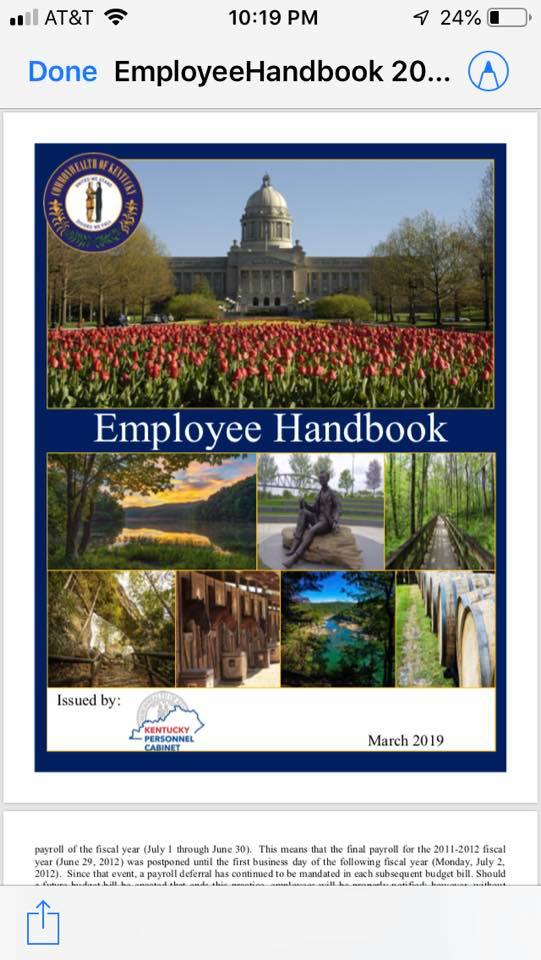
The reaction to the arbitrary dismissal of Lt. Gov. Jenean Hampton's executive assistant, Adrienne Southworth, earlier this week was one of nearly universal indignation and disapproval.
The previously unknown Southworth appears to be the most recent casualty of the ruthless political infighting in the Capitol.
Her future is uncertain. But as a nonmerit employee, Southworth accepted this risk. Her first loyalty was to the constitutional officer she served. In exchange for an enhanced salary, and other perks associated with nonmerit status, she forfeited the protection the merit system is intended to provide.
Like so many things in government, however, merit system protection has become a charade. And secrecy is the magic wand by which government perpetuates the illusion.
Earlier this year a former colleague, Jackie Arnold, received a public reprimand from his employer, the Kentucky Department for Libraries and Archives.
Suffice it to say, my estimate of his commitment to public service is the antithesis of his supervisors at KDLA. His marrow deep commitment is to the agency he serves and the public records program that the Kentucky legislature has deemed "essentially related" to the open records law.
His supervisors had to do a deep dive to find any "offenses" for which they could reprimand him. They found three "offenses" in email dating back to 2016, all of which he felt certain he could refute.
But that's where Arnold's problem arose.
Included in his reprimand was the following statement:
"You are instructed to maintain confidentiality regarding this matter and to not discuss this matter with anyone other than your supervisor or others within your chain of command. Your failure to adhere to this instruction may lead to disciplinary action, up to and including dismissal."
Bear in mind, this was a public reprimand, and Arnold had the legal right to respond. He was, however, hamstrung in his ability to effectively do so by this admonition not to discuss the reprimand and the threat of dismissal.
Concerned that doing so placed him at risk of dismissal, he nevertheless took the issue to the Personnel Board.
At a June 5 hearing, the board recognized the absurdity of KDLA's directive that he maintain the confidentiality of the public reprimand. The board ordered the attorney for the Education and Workforce Development Cabinet, to which KDLA is attached, to stand down.
Arnold may now discuss the allegations in the reprimand with former supervisors who can assist him in refuting them.
Surprisingly, the board characterized the offensive statement as "boilerplate language" and questioned whether Arnold construed it literally.
Threatened with discipline or dismissal, he indicated that he did.
Both Chapter 18A of the Kentucky Revised Statutes — which governs merit and nonmerit employees in state government — the open records law, and the State Government Employee Handbook, all of which Arnold cited to the board, make it abundantly clear that "Records contained in personnel files are public records open to public inspection pursuant to the Kentucky Open Records Act" and that they will be disclosed if requested. Included in these public records are reprimands.
No personnel attorney that I subsequently questioned about the language had ever seen it before. All disagreed that it was merely boilerplate language.
Any public agency that includes the language in a reprimand abridges a public employee's rights under Chapter 18A. The agency also raises considerable doubt about its understanding of the open records law. That agency should be sternly admonished for the practice and ordered to discontinue it.
As it stands, Southworth does not know the reasons she was dismissed but has been exonerated in the court of public opinion.
Arnold knew the "reasons" he was disciplined but could not exonerate himself because of KDLA's, and the Workforce Development Cabinet's, illegal "gag order."
That changed on June 5 as a result of Arnold's willingness to question the assertion of arbitrary and irrational authority.
Sadly, among many public agency bureaucrats, "darkness is believed to be the best of disinfectants" and "silence is truly golden." In their minds, the less the public knows about abuses within the world of public employment, the easier it is to perpetuate those abuses.


